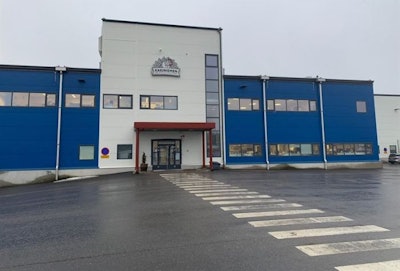
For the second quarter of the current fiscal year, HKScan reports improvements in net sales as volumes held steady with sale prices higher than in the same period of 2022.
From its continuing operations, net sales by the Group were EUR473.8 million (US$517 million), which represents a year-on-year increase of 3.8%. Over the same period, profit (as Earnings Before Interest and Taxes, EBIT) was EUR8.4 million — up from EUR3.1 million for the April-June quarter of 2022.
Consumer demand has picked up slightly, HKScan reports, and it achieved sales price increases that covered still-rising production costs.
Following the agreed sale of its business in Estonia at the end of last year, the group currently has operations in its home territory of Finland, as well as Sweden and Denmark.
Comparable EBIT for these centers of operation were EUR4.9 million, EUR4.1 million, and EUR1.1 million, respectively. For the Finnish and Danish businesses, this represented EBIT improvements from EUR1.4 million and EUR300,000, respectively. For the Swedish business unit, EBIT slipped slightly from EUR4.9 million for the second quarter of 2022.
HKScan turns half-year EBIT from loss to profit
Developments in the group’s business for the April-June quarter are generally reflected in the results for the half-year of 2023.
Net sales were up from EUR852.2 million to EUR931.4 million — a year-on-year increase of 9.3%. This reflects HKScan’s achievement of sales price rises that well covered inflationary costs. Asa result, the group reports a boost in EBIT from continuing operations from a loss of EUR700,000 for the first six months of the 2022 fiscal year to a positive figure of EUR6.5 million for the six months just ended.
For the individual business units, comparable EBIT for this period were EUR5.0 million for Finland, EUR3.9 million for Sweden, and EUR2.3 million for Denmark. As was reported for the three-month results, the Finnish and Danish operations achieved improvements in EBIT for the half-year, while that metric for Sweden dropped by EUR1.2 million.
For the group’s continuing operations, a pre-tax loss for the half year to June of 2023 was reported as EUR4.8 million. At the same point of last year, this metric was a negative figure of EUR3.5 million.
CEO: Group profitability 'unsatisfactory'
Commenting on these latest results, HKScan’s CEO Juha Ruohola stressed that the group has persevered with effective measures to save costs and improve cost efficiencies during the April-June quarter. Annual cost savings are expected to be around EUR12.6 million when they are complete in 2024.
While reporting that plans for EBIT improvement are on track, Ruohola described the profitability of the continuing operations as “unsatisfactory.”
“Improving profitability remains our key priority,” he stated.
This will be achieved through tight cost management, better production efficiency, and the optimization of the group’s product portfolio in line with changing consumer demand and commercial activities.
According to Ruohola, the divestment of the group’s former Baltic business to Maag was a key step in improving HKScan's profitability.
So far in this financial this year, the CEO reports that HKScan has advanced its responsibility program and Zero Carbon climate plan.
More on HKScan
With annual slaughtering of 93 million poultry, HKScan is just outside the Top 30 poultry meat companies in Europe, according to WATTPoultry.com’s Top Poultry Companies survey. One of the leading food companies in northern Europe, the company sells meat from chickens, turkeys, and ducks, as well as pork, beef, processed meats and convenience products. Its brands include HK, Scan, Kariniemen in Finland, and Rose in Denmark. HKScan also records significant export business.
In December of 2022, HKScan announced it had signed an agreement to sell its Baltic business to AS Maag Group of Estonia. When the transaction is completed, HKScan’s ownership of the Estonian operation will end, and the businesses and workforce will be transferred to the new owner.
At the end of last month, Estonia’s authorities approved the transfer of the business to Maag. Already in February, the Latvian Competition Authority unconditionally approved the transaction.
Despite a year-on-year double-digit increase in net sales for the first quarter of the current fiscal year, HKScan reported its main focus would be on strategies to improve profitability.

















